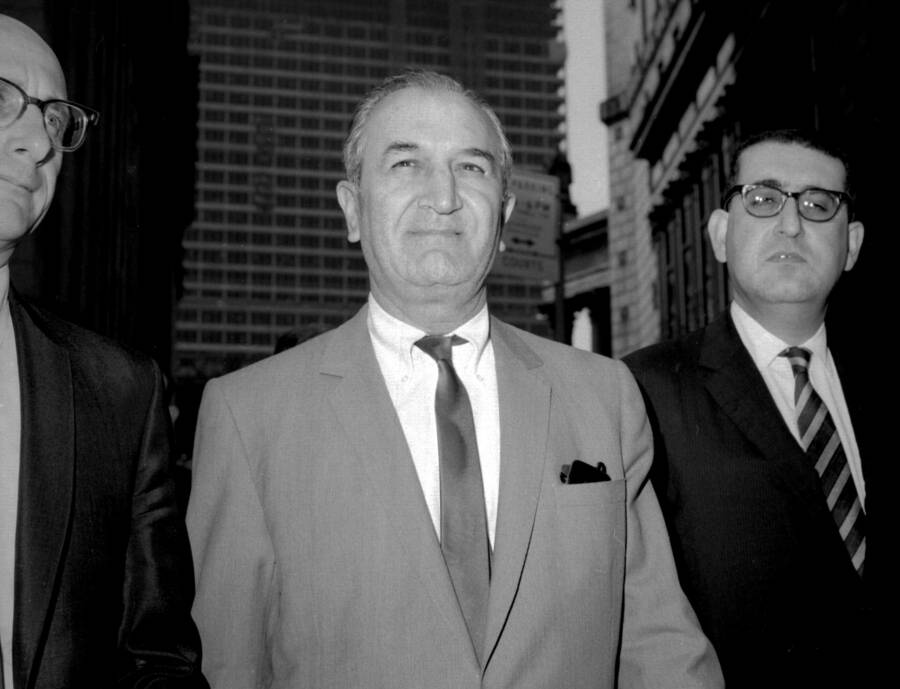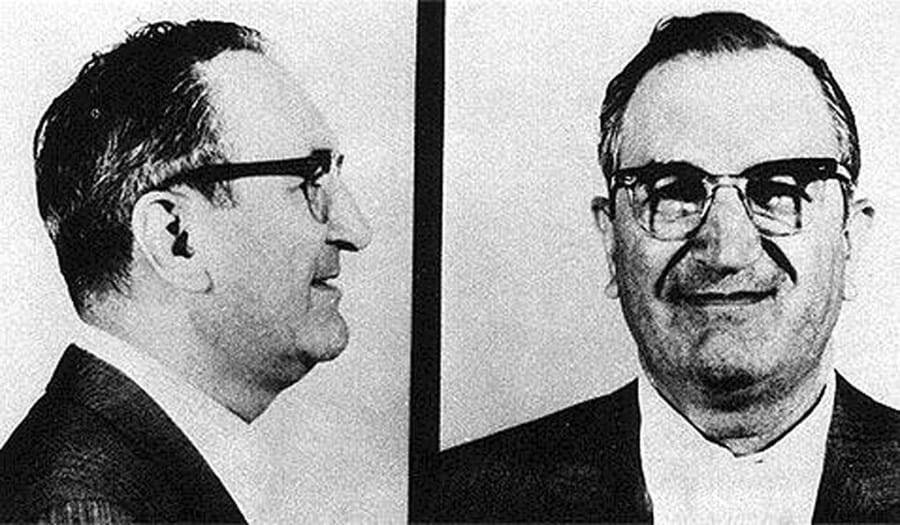Joe Bonanno, The Mob Boss Who Wrote A Tell-All Book

NY Daily News Archive/Getty ImagesJoe Bonanno leaving U.S. Federal Court with his attorney, Albert Krieger, on May 18, 1968.
Like Lucky Luciano and several other famous mob bosses, Joe Bonanno rose to power after the Castellammarese War. Unlike other bosses, however, Bonanno wrote a tell-all autobiography. He violated omerta, the Mafia code of silence and secrecy, yet Bonanno was able to live out his days in peace for another 20 years.
Born in Sicily on Jan. 18, 1905, Bonanno immigrated to New York City at a young age but spent just 10 years in the U.S. before his family returned to Italy. There, he came of age in the Sicilian Mafia and returned to New York City in 1924 as Mussolini cracked down on organized crime.
Young and well-read, Bonanno rose through the ranks of the Maranzano Family before the Castellammarese War saw the deaths of mob bosses Salvatore Maranzano and Joe Masseria. Just 26 years old, Bonanno then took control over the Maranzano Family, which became the Bonanno Family. As the head of one of New York’s Five Families, Bonanno had considerable power in Lucky Luciano’s governing body, the “Commission.”
“For nearly a thirty-year period after the Castellammarese War no internal squabbles marred the unity of our Family and no outside interference threatened the Family or me,” Bonanno later wrote.
But Joe Bonanno started to run into trouble in the 1960s. Then, The New York Times reports that his fellow Mafia bosses Tommy “Three Finger Brown” Lucchese and Carlo Gambino learned that Bonanno was planning to assassinate them in order to consolidate his power.

Wikimedia CommonsJoe Bonanno was charged with conspiracy to obstruct justice and convicted at the age of 75 in 1980. It was his first arrest.
Around the same time, Bonanno had also started to run into legal trouble. And as his problems mounted, he simply disappeared for 19 months.
The mob boss later claimed that he’d been abducted but — whatever the truth behind his disappearance — Bonanno was never quite as powerful afterward. And then he did two things that most mob bosses never do: he retired in 1968 and wrote a tell-all biography in 1983.
Gay Talese, who wrote Honor Thy Father about the Bonannos, told The New York Post that Bonanno was allowed to live for another 20 years before his death at the age of 97 because he hadn’t broken any Mafia rules.
“He never violated the code of silence,” Talese said, “he wasn’t a rat like Sammy ‘the Bull’ [Gravano], and he wasn’t an arrogant showoff like John Gotti.”





